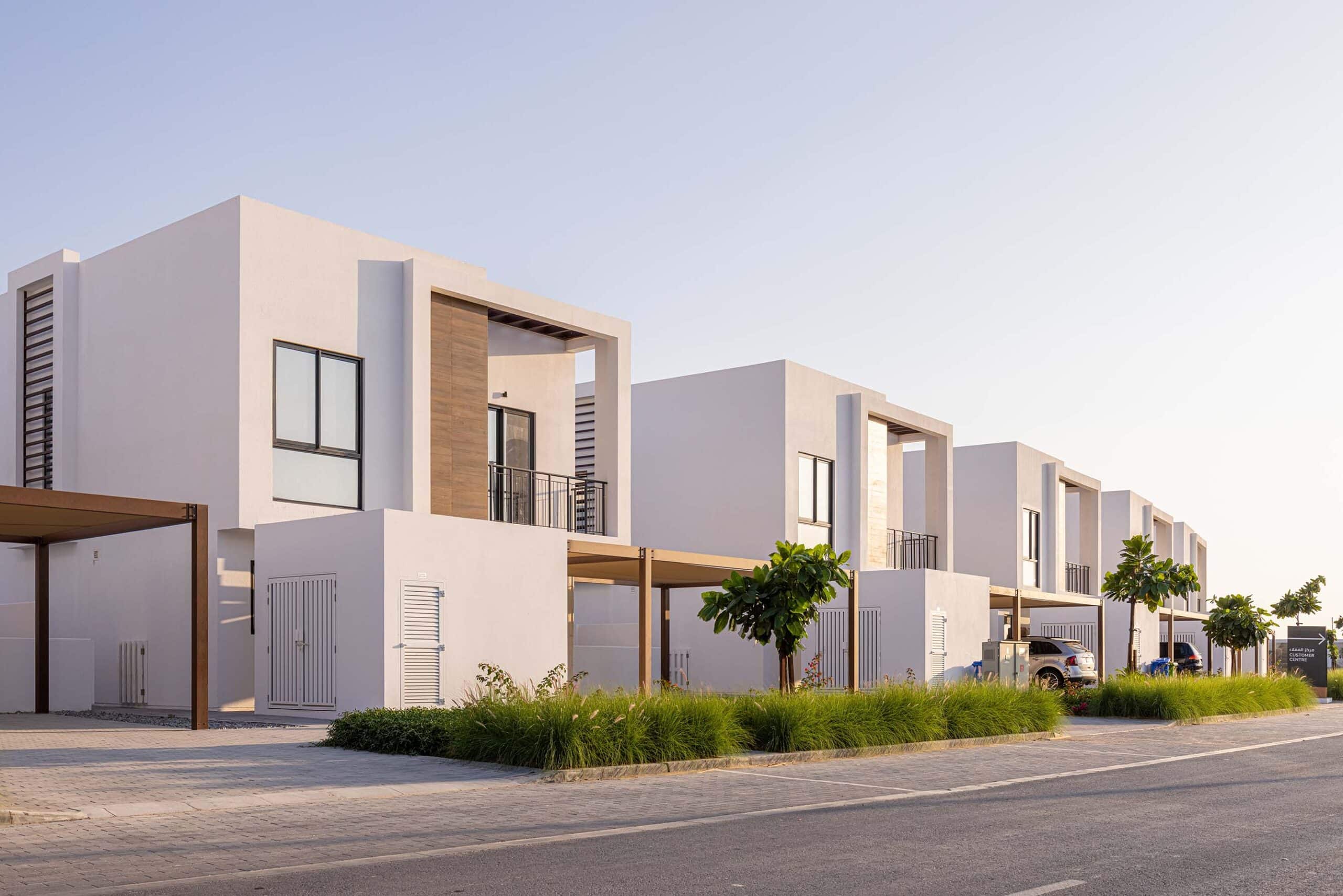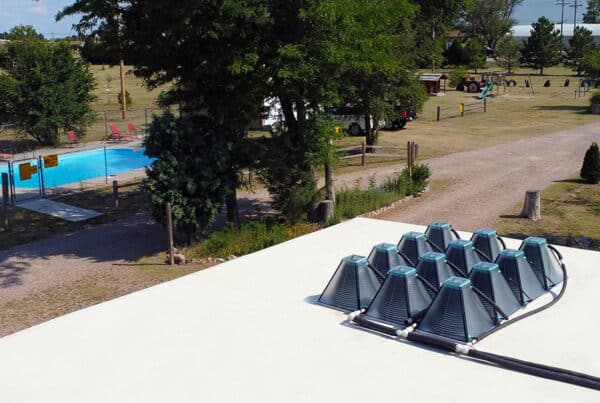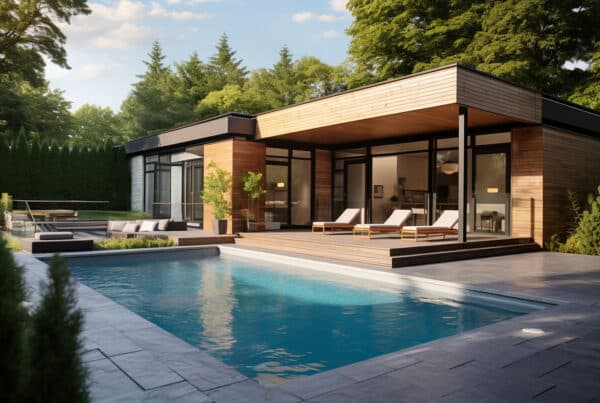As Dubai in the UAE continues its drive toward sustainable urban development, green building regulations are playing a pivotal role in shaping construction practices. A key component of these regulations is the mandatory installation of solar hot water systems in certain buildings.
In this article, we explore when a solar hot water system is required, its impact on energy costs and carbon emissions, and key considerations when selecting a solar thermal solution, especially in the UAE’s high-temperature, hard water environment.
Dubai Municipality’s Green Building Regulations: Solar Hot Water Requirements
Under Dubai Municipality’s Green Building Regulations & Specifications, solar water heating systems are mandatory for all new villas and buildings that require hot water as part of their function. This requirement applies to:
- Residential villas and buildings
- Hotels and hospitality facilities
- Labour accommodations
- Commercial kitchens and health clubs
- Any development where hot water demand exceeds 5,000 litres/day
Key Regulation Highlights:
- Minimum 75% of hot water energy demand must be met by solar thermal systems
- Storage tank sizing and backup heating must meet Dubai Municipality’s technical guidelines
- Systems must comply with Dubai Central Laboratory certification and international standards (e.g., ISO, ASHRAE)
Why Solar Hot Water? Impact on Energy Costs and Carbon Emissions
Heating water with electricity or gas is a significant energy cost in buildings. In the UAE, where ambient solar radiation exceeds 2,200 kWh/m² annually, solar hot water solutions offer a major opportunity to save energy.
Energy Cost Savings:
- Replacing electric water heating with solar can cut hot water energy costs by 70–90%
- Payback period typically 3–5 years for residential systems with systems lasting for over 10 years
- For larger buildings, operational savings can reach tens of thousands of dirhams annually
Carbon Emission Reduction:
- Solar water heaters reduce CO₂ emissions by 1–1.5 tonnes per household annually
- For large facilities, this can translate to dozens of tonnes of CO₂ avoided each year
Dubai’s abundant sunshine makes solar hot water systems one of the most effective and scalable clean energy investments for buildings.
Key Considerations for Selecting a Solar Hot Water System in the UAE
Choosing the right solar thermal system for UAE conditions is critical. The intense heat and high mineral content in water pose unique design and performance challenges.
1. Overheating Protection
UAE summers regularly exceed 45°C. Systems must be designed to handle high stagnation temperatures.
- Thermosiphon systems with heat-dissipation features are ideal for villas
- Pressurized systems must include temperature and pressure relief valves, expansion tanks, and over-temperature protection
- Look for solar collectors which do reach excessive temperatures
The SolarisKit HelioFlow solar collector has been engineered to reach a maximum temperature of 90degC providing a safer, lower maintenance solution for the UAE.
2. Hard and Mineralised Water
UAE water is often rich in calcium and magnesium, which leads to scaling inside pipes, heat exchangers, and collectors.
- Choose systems with glass-lined or polymer-coated tanks
- Use heat exchangers rather than direct heating to prevent scale build-up
- Consider integrating a water softener or descaling solution
- Look at solar thermal collectors which utilise a polymer type absorber as opposed to metal (typically used)
The SolarisKit HelioFlow solar collector utilises a high quality engineered polymer absorber coil making it suitable for hard and mineralised water.
3. Compliance and Certification
- Ensure systems are certified by the Dubai Central Laboratory (DCL) or other approved bodies
- Installers must be registered with Dubai Municipality
- Systems should meet ASHRAE 93, ISO 9806, or EN 12976 performance standards
Maintenance and Longevity
Proper maintenance ensures performance and extends lifespan:
- Annual inspection of collector panels and storage tanks
- Descaling every 1–2 years depending on water quality
- Check anode rods within hot water storage tank, pressure valves, and insulation integrity
Conclusion: Smart Compliance with Strong Returns
Installing a solar hot water system isn’t just about complying with Dubai’s Green Building Code—it’s about unlocking long-term energy savings, reducing emissions, and future-proofing your property.
With proper system design that addresses overheating risks and water hardness, solar thermal technology can offer robust, efficient, and compliant hot water solutions for homes, hotels, and commercial buildings across the UAE.




